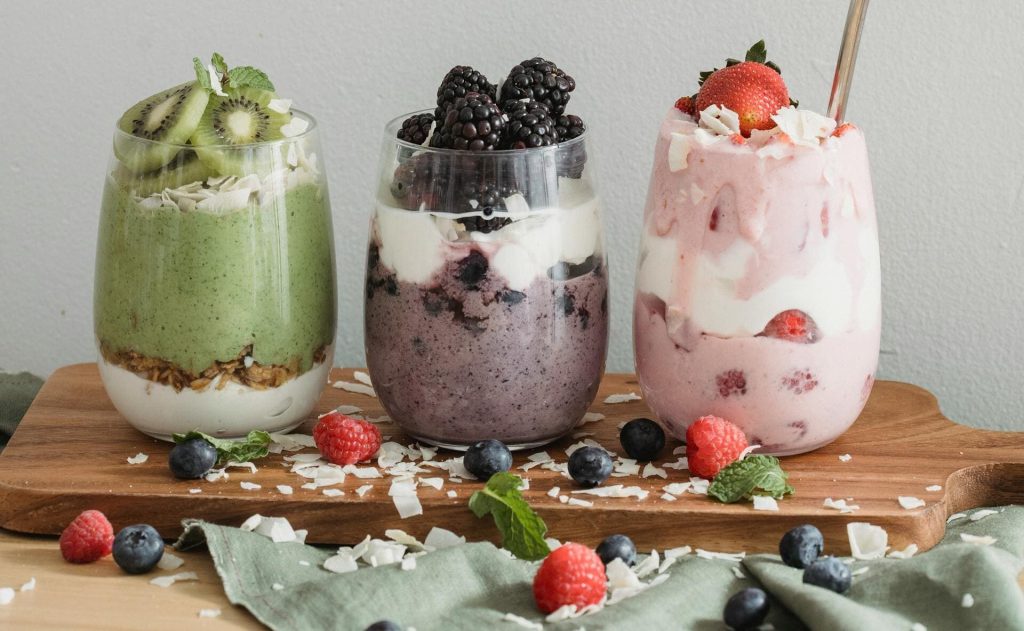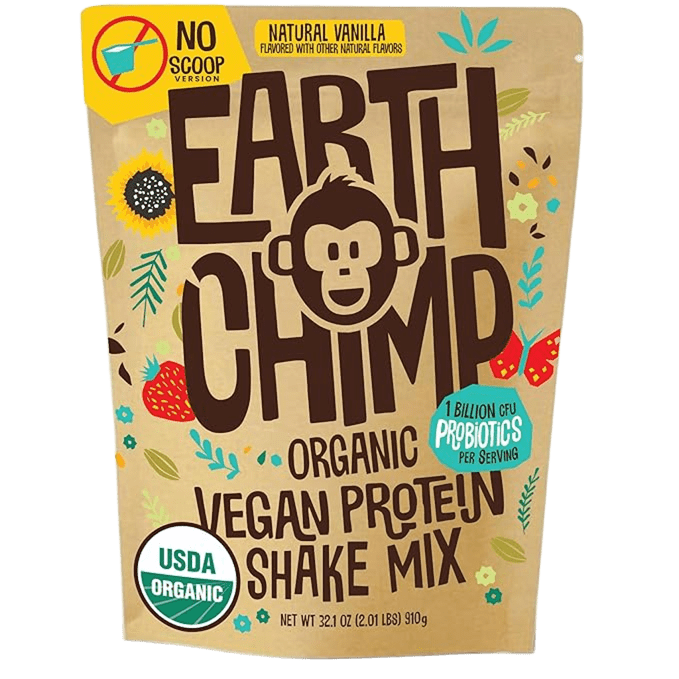
Table of Contents
Introduction
When it comes to finding the right supplement to support your fitness and dietary goals, lactose-free protein powders stand out as an excellent option. Designed specifically for those with lactose intolerance or dairy allergies, these protein powders offer all the benefits of high-quality protein without the digestive discomfort. In this comprehensive guide, we’ll explore the best lactose-free protein powders available, compare their nutritional content, mixability, versatility, and examine their environmental impact to help you make an informed choice. Whether you’re looking to build muscle, manage your weight, or simply maintain a healthy lifestyle, lactose-free protein powders can be a game-changer.
Who Should Use Lactose-Free Protein Powders?
Lactose-free protein powders are an ideal choice for a wide range of individuals. Here’s a look at who can benefit the most from incorporating these supplements into their diet:
- Individuals with Lactose Intolerance
- Why: Those who are lactose intolerant lack the enzyme lactase, which is necessary to break down lactose, a sugar found in milk. Consuming lactose can lead to digestive discomforts such as bloating, gas, and diarrhea. Lactose-free protein powders provide a way to get the benefits of protein without the unpleasant side effects of lactose.
- People with Dairy Allergies
- Why: Dairy allergies can cause a variety of symptoms ranging from mild to severe. Lactose-free protein powders, especially those derived from plant-based or non-dairy animal sources, offer a safe alternative for those who need to avoid dairy products entirely.
- Vegans and Vegetarians
- Why: Plant-based lactose-free protein powders like pea, hemp, and rice protein are excellent for vegans and vegetarians looking to increase their protein intake. These options ensure they receive all the essential amino acids required for muscle growth and overall health.
- Athletes and Fitness Enthusiasts
- Why: Protein is crucial for muscle repair and recovery. Athletes and fitness enthusiasts who are lactose intolerant or prefer to avoid dairy can benefit from lactose-free protein powders to meet their increased protein needs, enhance performance, and support muscle growth.
- Health-Conscious Consumers
- Why: Many lactose-free protein powders are made with clean, natural ingredients and are free from common allergens like gluten and soy. This makes them a suitable choice for health-conscious individuals who are looking to maintain a balanced and nutritious diet.
- Those Managing Weight
- Why: Protein is a key nutrient for weight management as it promotes satiety and helps maintain lean muscle mass. Lactose-free protein powders can be a valuable tool for those looking to lose weight or maintain their current weight by providing a protein-rich, low-calorie option.
- Individuals with Digestive Issues
- Why: For those with sensitive digestive systems, certain lactose-free protein powders come with added digestive enzymes or probiotics that aid in digestion and enhance gut health, making them easier on the stomach.
- Environmentally Conscious Consumers
- Why: Plant-based lactose-free protein powders generally have a lower environmental impact compared to dairy-based proteins. Choosing these options supports sustainable practices and reduces your ecological footprint.
Conclusion
Lactose-free protein powders are versatile supplements that cater to a variety of dietary needs and health goals. Whether you’re dealing with lactose intolerance, following a vegan lifestyle, striving for better digestive health, or simply looking for a sustainable protein source, lactose-free protein powders can be an excellent addition to your nutrition regimen.

Importance and Benefits of Lactose-Free Options
Lactose-free protein powders are a crucial alternative for those who are lactose intolerant or prefer to avoid dairy. Here’s why they matter:
Understanding Lactose Intolerance
Lactose intolerance means your body can’t digest lactose, a sugar found in milk, leading to symptoms like bloating, gas, and stomach cramps. Lactose-free protein powders eliminate these issues.

Key Benefits
- Digestive Health: Prevents digestive discomfort caused by lactose.
- High-Quality Protein: Offers essential amino acids for muscle repair and growth.
- Dietary Compatibility: Suitable for various diets including vegan, vegetarian, paleo, and keto.
- Nutrient-Rich: Often fortified with vitamins, minerals, and fiber.
- Weight Management: Helps control hunger and maintain lean muscle mass.
- Allergen-Free: Many are free from common allergens like gluten and soy.
- Environmental Impact: Plant-based options are more sustainable than dairy-based proteins.
Practical Benefits
- Convenience: Easy to incorporate into daily routines with shakes, smoothies, or recipes.
- Versatility: Can be used in baking, cooking, or mixed with non-dairy milk.
Types of Lactose-Free Protein Powders
Lactose-free protein powders come in a variety of types, catering to different dietary preferences and nutritional needs. Here’s a breakdown of the main types available:
Plant-Based Protein Powders
- Pea Protein
- Derived from yellow split peas, pea protein is rich in essential amino acids, particularly branched-chain amino acids (BCAAs) which are crucial for muscle recovery and growth. It is easy to digest and often hypoallergenic, making it a popular choice among those with food sensitivities.
- Hemp Protein
- Made from hemp seeds, hemp protein provides a complete protein source with all nine essential amino acids. It is also high in omega-3 fatty acids, which support heart health, and contains fiber that aids in digestion.
- Rice Protein
- Extracted from brown rice, rice protein is another hypoallergenic option that is easy on the digestive system. While it may have a slightly lower amino acid profile compared to pea or hemp protein, it is often combined with other plant proteins to enhance its nutritional value.
- Soy Protein
- Although soy is a common allergen, soy protein isolate is a complete protein source and is lactose-free. It is widely used and provides a high-quality protein option with a good balance of amino acids.

Animal-Based Protein Powders
- Egg White Protein
- Egg white protein is derived from the whites of eggs, offering a complete protein source with a high biological value. It is free from lactose and rich in essential amino acids, making it ideal for muscle building and repair.
- Beef Protein
- Hydrolyzed beef protein isolate is a unique option that provides a lactose-free and highly absorbable protein source. It is derived from beef and processed to remove fats and carbohydrates, leaving a pure protein product.
Mixed Source Protein Powders
- Blended Plant Proteins
- Some lactose-free protein powders combine multiple plant proteins, such as pea, rice, and hemp, to create a well-rounded amino acid profile. These blends offer the benefits of various plant sources in one convenient product.
- Collagen Protein
- While not a complete protein, collagen protein is often included in the diet for its benefits to skin, hair, nails, and joint health. It is usually derived from bovine or marine sources and is lactose-free.
Environmental Impact of Lactose-Free Protein Powders
The environmental impact of lactose-free protein powders is an important consideration for many consumers. By choosing lactose-free options, particularly plant-based varieties, you can contribute to sustainability efforts and reduce your ecological footprint. Here’s a closer look at the environmental benefits and considerations of lactose-free protein powders:
Plant-Based Protein Powders
- Lower Carbon Footprint
- Plant-based lactose-free protein powders, such as those made from peas, hemp, and rice, typically have a much lower carbon footprint compared to animal-based proteins. The cultivation and processing of these plant sources require fewer resources and produce fewer greenhouse gases.
- Sustainable Farming Practices
- Many plant-based protein sources are grown using sustainable farming practices that help preserve soil health and reduce water usage. For example, hemp is known for its minimal water requirements and ability to grow in various climates, making it an environmentally friendly crop.
- Reduced Land Use
- Producing plant-based proteins generally requires less land compared to raising livestock for animal-based proteins. This reduced land use helps prevent deforestation and habitat loss, supporting biodiversity.


Animal-Based Protein Powders
- Efficient Production
- While animal-based lactose-free protein powders, such as egg white and beef protein, do have a higher environmental impact than plant-based options, some products are produced using efficient methods that minimize waste and energy consumption. For instance, hydrolyzed beef protein is often made from parts of the animal that would otherwise go unused.
- Sourcing and Sustainability
- Some companies prioritize ethical sourcing and sustainability in their production processes. Choosing brands that follow these practices can help mitigate the environmental impact of animal-based proteins.


Nutritional Content of Lactose-Free Protein Powders
When choosing lactose-free protein powders, understanding their nutritional content is essential to ensure you’re getting the right balance of protein and other nutrients to support your health and fitness goals. Here’s an overview of what to look for in the nutritional profiles of these protein supplements.
Protein Content
The primary purpose of any protein powder is to provide a concentrated source of protein. Lactose-free protein powders offer varying amounts of protein per serving, typically ranging from 15 to 30 grams. High-quality options ensure you receive the essential amino acids needed for muscle repair, growth, and overall health.
- Complete Proteins: Some lactose-free protein powders, such as soy and hemp, provide all nine essential amino acids, making them complete protein sources. This is crucial for muscle building and recovery.
- Incomplete Proteins: Other plant-based proteins like rice may lack one or more essential amino acids but can be combined with other sources to create a complete protein profile.
Amino Acid Profile
The amino acid profile of lactose-free protein powders is important for assessing their effectiveness in muscle repair and growth. Look for powders rich in branched-chain amino acids (BCAAs), such as leucine, isoleucine, and valine, which are vital for muscle recovery and protein synthesis.
Caloric Content
Lactose-free protein powders vary in caloric content, which can range from 100 to 200 calories per serving. This is influenced by the type of protein and any added ingredients. Those looking to manage weight should consider lower-calorie options, while those aiming to gain muscle mass may prefer higher-calorie powders with added nutrients.
Additional Nutrients
Many lactose-free protein powders are fortified with additional vitamins and minerals to enhance their nutritional value:
- Fiber: Helps with digestion and can promote a feeling of fullness. Plant-based proteins like hemp and pea often contain beneficial fiber.
- Omega-3 Fatty Acids: Found in hemp protein, these are essential for heart health and anti-inflammatory benefits.
- Iron: Plant-based proteins like pea protein are good sources of iron, important for oxygen transport and energy production.
- Vitamins: Some powders include added vitamins like B12 (important for vegans), D, and E to support overall health.

Low in Sugar and Fat
High-quality lactose-free protein powders typically contain minimal added sugars and fats, making them suitable for various dietary goals, including weight management and muscle building. Always check the ingredient list to ensure there are no unnecessary additives that could impact your health goals.
Special Formulations
Certain lactose-free protein powders are designed with specific health goals in mind:
- Enhanced Digestibility: Some powders include digestive enzymes to improve nutrient absorption and reduce gastrointestinal discomfort.
- Probiotics: Added probiotics can support gut health, making these powders a good option for those with digestive issues.
Mixability and Versatility of Lactose-Free Protein Powders
When choosing a protein supplement, mixability and versatility are key factors to consider. Lactose-free protein powders offer a range of options that blend well with various ingredients and can be used in multiple recipes, making them a convenient addition to your diet.
Mixability
- Smooth and Consistent Texture
- High-quality lactose-free protein powders are designed to mix easily with liquids, providing a smooth and consistent texture without clumps. This ensures a pleasant drinking experience, whether you’re using a shaker bottle or blender.
- Water and Milk Alternatives
- Lactose-free protein powders mix well with water, almond milk, soy milk, coconut milk, and other non-dairy alternatives. This flexibility allows you to choose your preferred base for shakes and smoothies.
- Minimal Settling
- Good mixability also means that the powder remains evenly distributed in the liquid, minimizing settling at the bottom of your glass. This consistency is crucial for ensuring you get the full nutritional benefit with each sip.

Versatility
- Smoothies and Shakes
- The most common use of lactose-free protein powders is in smoothies and shakes. Blend them with fruits, vegetables, and your favorite non-dairy milk for a nutritious and delicious meal or snack. Popular combinations include banana and almond milk, mixed berries and oat milk, or spinach and coconut milk.
- Baking
- Lactose-free protein powders can be added to baking recipes to boost the protein content of muffins, pancakes, cookies, and breads. This is a great way to enjoy your favorite treats while increasing their nutritional value. For example, you can add a scoop of protein powder to pancake batter or mix it into the dough for homemade protein bars.
- Cooking
- Incorporate lactose-free protein powders into savory dishes like soups, stews, and sauces. They can be used to thicken sauces or soups while adding a protein boost. This is particularly useful for vegan or vegetarian recipes that may lack sufficient protein from other sources.
- Oatmeal and Yogurt
- Stir lactose-free protein powders into oatmeal or yogurt for a protein-packed breakfast or snack. This not only enhances the protein content but also adds flavor. For instance, vanilla protein powder can be mixed into overnight oats with fresh fruit and nuts.
- Protein Balls and Snacks
- Make homemade protein balls or energy bars using lactose-free protein powders, nuts, seeds, and dried fruit. These snacks are perfect for on-the-go nutrition and can be customized to your taste preferences.
Conclusion
Lactose-free protein powders offer excellent mixability and versatility, making them a convenient and adaptable addition to your diet. Whether you prefer them in shakes, baked goods, savory dishes, or snacks, these protein powders ensure you can easily meet your protein needs in a variety of delicious ways.
Pros and Cons of Lactose-Free Protein Powders
Lactose-free protein powders offer a range of benefits, especially for those with lactose intolerance or dairy allergies. However, like any supplement, they come with their own set of advantages and disadvantages. Here’s a clear look at the pros and cons of using lactose-free protein powders.
Pros of Lactose-Free Protein Powders
- Digestive Health
- Pro: Lactose-free protein powders are ideal for individuals with lactose intolerance, preventing digestive issues such as bloating, gas, and diarrhea. This allows those with sensitive stomachs to enjoy the benefits of protein without discomfort.
- Nutritional Value
- Pro: Many lactose-free protein powders provide high-quality protein, rich in essential amino acids necessary for muscle repair and growth. Plant-based options often include additional nutrients like fiber, vitamins, and minerals, enhancing overall nutritional intake.
- Versatility
- Pro: Lactose-free protein powders can be used in various recipes, from shakes and smoothies to baking and cooking. Their versatility makes them an excellent addition to any diet, whether you’re preparing breakfast, snacks, or meals.
- Allergen-Free
- Pro: Many lactose-free protein powders are free from other common allergens, such as gluten, soy, and nuts. This makes them suitable for individuals with multiple food sensitivities, offering a safe protein source.
- Environmental Impact
- Pro: Plant-based lactose-free protein powders typically have a lower environmental footprint compared to dairy-based proteins. They require fewer resources to produce, contributing to more sustainable consumption.

Cons of Lactose-Free Protein Powders
- Taste and Texture
- Con: Some lactose-free protein powders, particularly certain plant-based options, can have a distinct taste and gritty texture that may not be appealing to everyone. Finding the right product that suits your palate might require some experimentation.
- Nutrient Profile
- Con: While many plant-based protein powders are nutritionally rich, they can be incomplete proteins, lacking one or more essential amino acids. However, this can often be mitigated by combining different protein sources or choosing blended products.
- Price
- Con: Lactose-free protein powders, especially those made from premium ingredients or offering additional health benefits, can be more expensive than regular whey protein powders. This might be a consideration for budget-conscious consumers.
- Availability
- Con: Depending on your location, certain lactose-free protein powders might be less readily available compared to more common whey protein options. This could limit your choices and require you to order online.
- Digestibility
- Con: Some individuals might still experience digestive issues with certain plant-based proteins, such as those made from soy or legumes. It’s important to pay attention to how your body responds and choose a product that suits your digestive system.

Conclusion
Lactose-free protein powders offer numerous benefits, including improved digestive health, high nutritional value, versatility, and reduced environmental impact. However, they also come with potential drawbacks like taste and texture issues, higher prices, and limited availability. Weighing these pros and cons can help you decide if lactose-free protein powders are the right choice for your dietary and health needs.

Taste and Texture of Lactose-Free Protein Powders
The taste and texture of lactose-free protein powders are crucial factors that influence their overall appeal and usability. Here’s an overview of what to expect from various types of lactose-free protein powders.
Taste
- Plant-Based Protein Powders
- Pea Protein: Has a slightly earthy flavor, which can be masked with strong-flavored ingredients like berries or cocoa.
- Hemp Protein: Offers a nutty taste that blends well with smoothies and baked goods.
- Rice Protein: Generally mild and neutral, making it versatile for different recipes.
- Soy Protein: Smooth and somewhat bean-like, but often masked with flavorings.
- Animal-Based Protein Powders
- Egg White Protein: Mild flavor, often described as slightly eggy, but easily masked with other ingredients.
- Beef Protein: Typically flavorless but can have a slight beefy aftertaste in some brands.
Texture
- Smoothness
- High-quality lactose-free protein powders are designed to mix well with liquids, providing a smooth, non-gritty texture. However, plant-based proteins can sometimes have a grainy texture due to their fiber content.
- Mixability
- Water and Milk Alternatives: Lactose-free protein powders usually mix well with water, almond milk, soy milk, and other non-dairy alternatives. Using a blender often improves mixability, resulting in a smoother texture.
- Smoothies and Shakes: Blending protein powders with fruits, vegetables, and other ingredients can enhance their texture, making them creamy and enjoyable to drink.
- Baking and Cooking
- When used in baking and cooking, lactose-free protein powders can sometimes alter the texture of the final product. For example, they may make baked goods denser or chewier. It’s essential to experiment with recipes to achieve the desired consistency.
Enhancing Taste and Texture
- Flavor Additions
- Adding natural flavor enhancers like vanilla extract, cocoa powder, or fruit can significantly improve the taste of lactose-free protein powders. Sweeteners like honey, maple syrup, or stevia can also help.
- Smoothie Ingredients
- Incorporating ingredients like bananas, berries, nut butters, and yogurt can enhance both the taste and texture, making your protein shake more enjoyable.
The taste and texture of lactose-free protein powders vary depending on their source and brand. While some may have a distinct flavor or grainy texture, there are many ways to improve their palatability. Experimenting with different recipes and mix-ins can help you find a combination that suits your taste preferences.

Conclusion
Lactose-free protein powders provide an excellent solution for those who need to avoid dairy but still want to reap the benefits of high-quality protein. From improved digestive health and versatile usage options to a lower environmental footprint, these protein supplements offer numerous advantages. By understanding the various types available, their nutritional content, and how they can be incorporated into your diet, you can make an informed decision that best suits your needs.
Whether you choose plant-based options like pea, hemp, and rice protein, or animal-based alternatives such as egg white and beef protein, lactose-free protein powders ensure you don’t have to compromise on your health goals. Consider the pros and cons, and select the product that aligns with your dietary preferences and lifestyle.
Explore the top choices highlighted in this guide and take a step towards a healthier, dairy-free diet. Remember, the right lactose-free protein powder can be a powerful addition to your nutrition plan, helping you achieve your fitness and wellness objectives without the drawbacks of lactose.
Recommended 5 Best Lactose-Free Protein Powders
Here are five top lactose-free protein powders based on reviews and customer feedback. Each product includes a brief overview, pros and cons, estimated price, recommended flavors, and links for purchase.

1. Orgain Organic Vegan Protein Powder
Overview: Orgain Organic Vegan Protein Powder is a popular choice among health enthusiasts for its high-quality plant-based protein. It provides 21 grams of protein per serving along with 6 grams of prebiotic fiber, making it an excellent option for digestive health. This product is free from lactose, added sugars, and GMOs.
Pros:
- 21 grams of plant-based protein per serving
- Includes 6 grams of prebiotic fiber
- Free from lactose, added sugars, and GMOs
- Available in multiple flavors
- Affordable and widely available
Cons:
- Some users find the texture slightly gritty
- A few users report a mild aftertaste
Customer Feedback:
- Generally praised for its taste and smooth blending capabilities
- Positive reviews highlight its effectiveness in supporting digestion and muscle recovery
Recommended Flavor: Vanilla Bean

2. EarthChimp Organic Vegan Protein Powder
Overview: EarthChimp Organic Vegan Protein Powder is a high-quality, plant-based protein supplement that caters to both women and men. It is enriched with probiotics, making it an excellent choice for digestive health. This product is free from lactose, dairy, and GMOs, and is also gluten-free. It offers 26 servings per container and is designed to be an all-natural protein source.
Pros:
- High-Quality Plant Protein: Provides a robust blend of plant-based proteins, making it suitable for vegans and those with lactose intolerance.
- Includes Probiotics: Enhances digestive health with the addition of probiotics.
- Free from Common Allergens: Contains no lactose, dairy, GMOs, or gluten, making it suitable for people with various dietary restrictions.
- All-Natural Ingredients: Uses only natural ingredients without artificial additives or preservatives.
- Good Mixability: Blends well with various liquids, ensuring a smooth and enjoyable texture.
Cons:
- No Scoop Included: Some users might find it inconvenient that the product does not come with a scoop for measuring servings.
- Taste Preferences: While many users enjoy the taste, some may find it too sweet or not to their liking.
Customer Feedback:
- Positive Reviews: Users appreciate the clean ingredient profile and the addition of probiotics, which help with digestion. The vanilla flavor is particularly well-liked for its natural taste and versatility in various recipes.
- Mixability: Customers note that it mixes well with water, milk alternatives, and smoothies, providing a smooth texture without grittiness.

3. Vega Premium Sport Protein Powder
Overview: Vega Premium Sport Protein Powder is a high-quality, plant-based protein supplement designed for athletes and active individuals. It is vegan, non-GMO, and gluten-free, making it suitable for various dietary needs. This protein powder is NSF Certified for Sport, ensuring it meets high standards for safety and quality. Each serving provides a significant protein boost to support muscle recovery and overall performance.
Pros:
- High Protein Content: Offers 30 grams of plant-based protein per serving, derived from pea protein, pumpkin seed protein, organic sunflower seed, and alfalfa protein.
- NSF Certified for Sport: This certification ensures that the product is free from banned substances, making it a safe choice for athletes.
- Additional Nutrients: Includes tart cherry for recovery, probiotics, and turmeric extract for anti-inflammatory benefits.
- Vegan and Allergen-Free: Free from dairy, gluten, and soy, making it suitable for those with allergies and dietary restrictions.
- Good Mixability: Blends well with water, almond milk, and other liquids, providing a smooth and creamy texture.
Cons:
- Taste Preferences: While many users enjoy the vanilla flavor, some might find it too sweet or slightly chalky.
- Price: Higher price point compared to some other plant-based protein powders.
Customer Feedback:
- Positive Reviews: Users appreciate the high protein content and additional recovery benefits from ingredients like tart cherry and turmeric. Many reviews highlight its effectiveness in supporting post-workout recovery.
- Mixability: Generally well-received for its smooth mixing properties, though some users prefer to use a blender for optimal texture.

4. Sunwarrior Vegan Protein Powder
Overview: Sunwarrior Vegan Protein Powder is an organic, plant-based protein supplement designed to provide a complete amino acid profile with the inclusion of BCAAs. It is made from a blend of hemp seed protein, pea protein, and goji berry, among other plant-based ingredients. This product is free from soy, dairy, gluten, and GMOs, making it a suitable choice for those with dietary restrictions.
Pros:
- High Protein Content: Offers a substantial 20 grams of plant-based protein per serving.
- Complete Amino Acid Profile: Includes all essential amino acids, enhanced with BCAAs for muscle recovery and growth.
- Organic and Clean Ingredients: Free from synthetic additives, GMOs, soy, dairy, and gluten.
- Additional Nutrients: Contains vitamins, minerals, and antioxidants from natural sources like goji berries and coconut.
- Good Mixability: Blends well with various liquids, providing a smooth texture.
Cons:
- Taste Preferences: While the vanilla flavor is generally well-liked, some users might find it slightly sweet or not to their liking.
- Price: Slightly higher cost compared to some other plant-based protein powders.
Customer Feedback:
- Positive Reviews: Users appreciate the clean ingredient list and the inclusion of BCAAs, which help with muscle recovery. Many reviews highlight its smooth mixing properties and pleasant vanilla flavor.
- Mixability: Generally praised for blending well with water, almond milk, and smoothies without leaving a gritty texture.
Recommended Flavor: Vanilla

5. Garden of Life Organic Plant-Based Protein Powder
Overview: Garden of Life Organic Plant-Based Protein Powder is a high-quality supplement made from a blend of organic plant proteins, including pea, sprouted grains, seeds, and legumes. It is designed to provide a complete amino acid profile, along with added vitamins, probiotics, and digestive enzymes. This product is free from dairy, gluten, and soy, making it suitable for those with various dietary restrictions.
Pros:
- High Protein Content: Provides 22 grams of protein per serving from organic plant sources.
- Complete Amino Acid Profile: Contains all essential amino acids necessary for muscle repair and growth.
- Added Nutrients: Enriched with vitamins, probiotics, and digestive enzymes to support overall health and digestion.
- Organic and Clean Ingredients: Free from synthetic additives, GMOs, dairy, gluten, and soy.
- Certified Organic: USDA Organic and Non-GMO Project Verified.
Cons:
- Taste Preferences: While the flavor is generally well-liked, some users might find it too sweet or slightly chalky.
- Price: Higher cost compared to some other plant-based protein powders.
Customer Feedback:
- Positive Reviews: Users appreciate the comprehensive nutritional profile and the inclusion of probiotics and digestive enzymes, which help with digestion and overall gut health. Many reviews highlight its effectiveness in supporting muscle recovery and its pleasant vanilla flavor.
- Mixability: Generally praised for blending well with water, almond milk, and smoothies, though some users prefer using a blender for optimal texture.
Recommended Flavor: Vanilla
